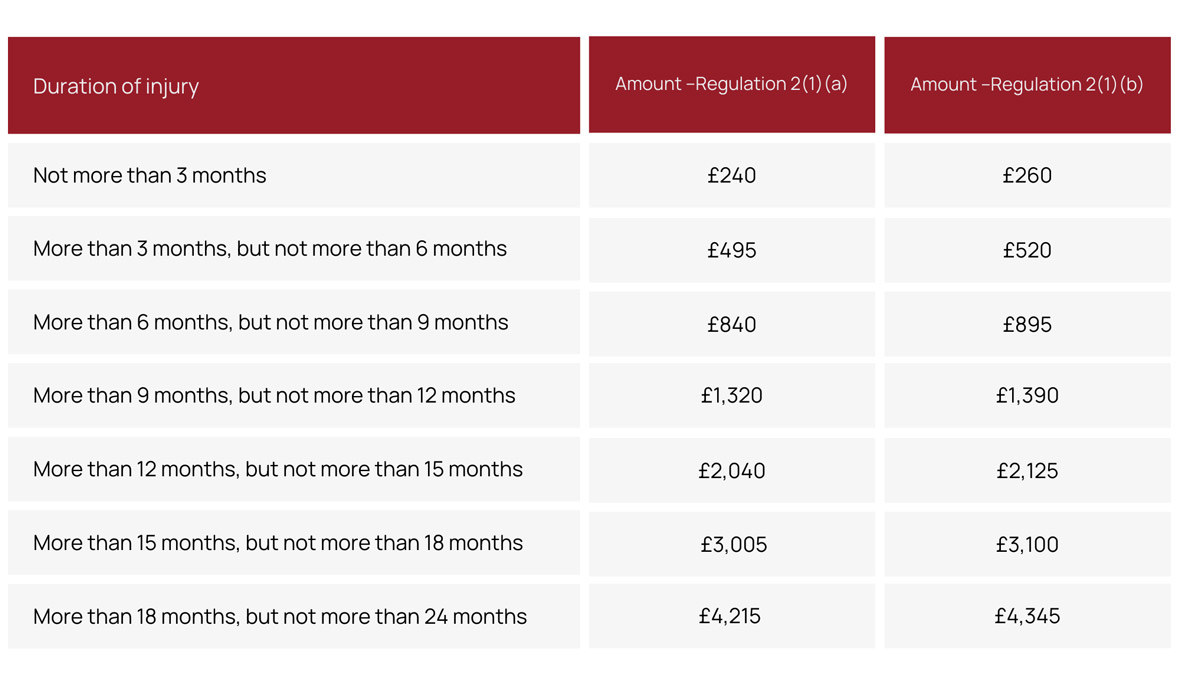
Whiplash Reforms – What Are They and What do They Mean for Claimants?
Whiplash reforms came into effect in May 2021, and saw a change in the way that injured parties in Road Traffic Accidents (“RTA”) suffering with Whiplash and soft-tissue injuries could claim Road Traffic Accident compensation. Despite the changes being in force for over two years, Claimant’s and Solicitors alike are still getting to grips with the effects. In this article, written by an expert Road Traffic Accident Solicitor at Smith Partnership, we discuss the factors and considerations behind the Whiplash reforms.
The Reforms
The Reforms were introduced on 31st May 2021, affecting claims that took place, or will take place, after this date, as part of scheme to reduce the number of Whiplash Claims and tackle “claim culture”, creating a streamlined access to compensation. The affected Claimants are now subject to a fixed costs regime that significantly limits the amount of compensation they can receive for these types of injuries. The Whiplash injuries falling into this new Small Claims category, range from modest and relatively speedy recoveries to a lengthier period of recovery of up to two years that garner a higher award of compensation up to £5,000 at an absolute maximum. Claimant’s falling into this new Small Claims category must now submit their own claim to the Official Injury Claims Portal.
The biggest change for Solicitors being that the Small Claims limit for RTA claims has now been increased from £1,000 to £5,000 and subsequently the ability to recover costs is no longer possible in these lower value Whiplash claims. Legal assistance is therefore only of limited availability for Claimants suffering with these Whiplash Injuries, as many firms have made the decision to no longer accept these instructions, and seemingly little guidance is offered for Claimants from the Portal itself.
What is Whiplash?
According to the NHS, Whiplash is defined as a neck injury caused by sudden movement of the head.
How Long Does it Take to Recover from Whiplash?
The recovery time for Whiplash can vary from person to person, but on average, it usually gets better within 2 to 3 months. However, it's important to note that some individuals may experience lingering symptoms for a longer period, while others may recover more quickly.
What are the Symptoms of Whiplash Injury?
Common symptoms of whiplash include:
- neck pain,
- neck stiffness and difficulty moving your head,
- headaches,
- pain and muscle spasms in the shoulders and arms.
The Reforms encapsulate all severities of Whiplash injuries starting at a three-month recovery, and up to an extensive two-year recovery period. Minor Soft tissue injuries are also included in this, though not if the soft-tissue damage is linked to a more severe non-Whiplash injury such as a broken arm.
Will I fall into the Small Claims Limit?
This description is often not enough to reassure Claimants that their claim falls into the Small Claims bracket, though the overwhelming majority will do just that. In order for a Whiplash injury to exceed the Small Claims limit, there must be evidence to suggest the recovery time would extend beyond two years and have no other contributing factors such as previous injury or general wear and tear. In reality, this is very unlikely. But if you are still concerned, fear not, should evidence arise that suggests the matter no longer falls inside the Small Claims limit, you can leave the process and seek further legal advice.
Are There Any Exceptions?
In short, yes. If the reforms were not enough for Claimants to navigate, they must also consider if the below exceptions apply to them:
- you are a 'vulnerable road user', for example:
- using a motorcycle
- a pillion passenger on, or a passenger in sidecar attached to, a motorcycle
- using a wheelchair, a powered wheelchair or a mobility scooter
- using a bicycle or other pedal cycle
- riding a horse
- a pedestrian
- you or the person you are pursuing your claim against (Defendant) acts as a personal representative of a deceased person,
- you are making a claim on behalf of a child; or
- you or the person at fault is a protected party i.e. a person who lacks capacity to conduct the proceedings under the Mental Capacity Act 2005.
This list is not exhaustive and more guidance can be found on the Whiplash Reform Programme: Information and FAQ page published by the Government.
If you have suffered injuries that you believe may fall into the Small Claims category, but one of the above apply, you should still be able to secure legal representation under a “No Win No Fee” agreement, as you would prior to the Reforms.
What This Means for Solicitors
Solicitors that have previously acted in a plethora of RTA claims, have now had to reconsider how they are best positioned to help Claimants. In claims pre-Reform, solicitors would act under a Conditional Fee Agreement AKA on a “No Win No Fee” basis. This agreement means that legal fees are recoverable, in part, from the opposing party, and in many cases a small deduction will be taken from the Claimant’s damages to cover any shortfall. The benefit for Claimants being, that if they are unsuccessful, then Solicitors will write off any fees incurred with no charge.
Following the reforms, in the case of Small Claims injuries, a “No Win No Fee” agreement is just not economically viable for firms as legal fees are no longer recoverable from the opposing party. As such Solicitors are having to make a judgement prior to accepting instructions whether or not the injury would fall under this category and may risk turning away work that could narrowly escape the Small Claims Limit. Many firms are still getting to grips with this and find themselves in a position where instructions have been accepted and the prospects of recovering fees are slim.
Unfortunately, this is the case for Smith Partnership and we can no longer accept instructions for cases that would fall under the Small Claims Limit.
What this Means for Claimants
If the above conditions are met, or Claimants are as sure as they can be, then claims of this nature must now be submitted through the Official Injury Claims Portal. The Portal itself allows Claimants to register and then input the details of the claim section by section. The details required includes personal details, details of the Defendant Driver, their insurance company and details of the injuries sustained. The portal allows the Claim to be sent to the Insurers of the Defendant, to await their decision on liability. If the claim progresses, then it enables Claimants to source appropriate medical evidence to value their claim and communicate directly with the Defendant’s Insurers.
How Do I Value My Claim?
This is an area that requires technical skill and knowledge from Solicitors in all claims, so it is no wonder that this is a difficult ask of Claimants acting without legal advisors. As part of the Reforms, a Tariff has been established:

Various guides are available through the Gov.com website also: Whiplash Reform Programme: Information and FAQ, though as the scheme is still in its infancy, many of the guidance is vague and does not offer the clarity needed to reassure Claimants. There is hope, however, that more guidance will become available as the use of the Portal increases.
How Can Smith Partnership’s Personal Injury Solicitors Help?
Here at Smith Partnership we understand that the reforms have left Claimants in a position of uncertainty at a time where they are already vulnerable due to injury. If you are unsure about whether your claim falls under the new Small Claims limit, then please do not hesitate to contact the Personal Injury Department to discuss your claim, where we can point you in the right direction. By the same token, if you have suffered injuries of a more severe nature because of an RTA and you need advice, we have a team of dedicated professionals able to assist in this trying time.
To find out how our expert team of solicitors can help you, contact us today on 0330 123 1229, send us an email via info@smithpartnership.co.uk or complete our contact form.

Share this article

















